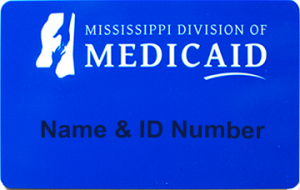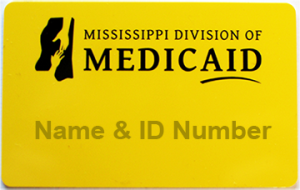Serving Mississippians in Need
The Mississippi Division of Medicaid (DOM) serves a variety of Mississippi populations through three main coverage groups: Regular fee-for-service Medicaid, Medicaid’s coordinated care program MississippiCAN, and the Children’s Health Insurance Program (CHIP).
DOM serves roughly one in four Mississippians who receive health benefits through Medicaid or CHIP.
For individuals who have qualified for Mississippi Medicaid benefits, the following links will provide more information regarding service copays, how to find a provider, reporting changes and more.
- Provider search – search to locate a provider who accepts Mississippi Medicaid
- MESA Portal for Members – website portal for Mississippi Medicaid beneficiary services
- Important Health Coverage Tax Documents/1095-B
- Eligibility Reporting Requirements
Fall Workshops Announced for Medicaid Members
Informational workshops for Medicaid members will be held around the state throughout September and October to share updates about Medicaid fee-for-service, MississippiCAN and CHIP services. Check the schedule to find a location near you.
Medicaid and Medicare are Different
Medicaid: The state administers the program within federal guidelines, receives joint state and federal funding, and targets low-income children, some parents/caretakers, pregnant women, and individuals who are aged, blind or have a disability.
Medicare: This is a federal program that receives federal funding, and it primarily serves people age 65 and older, some adults with a disability, and dialysis patients.
Medicaid Identification Cards
Once Medicaid eligibility has been approved, each eligible member will get a plastic Medicaid identification (ID) card in the mail. The standard Medicaid ID card is blue, printed with the Medicaid logo and the beneficiary’s name and ID number. Medicaid ID cards for members on the family planning waiver are yellow.

Standard Blue Medicaid ID Card

Family Planning Waiver Yellow Medicaid ID Card
Always remember to take your Medicaid ID card every time you go to get health services. Remember that not all doctors, dentists and other providers accept Medicaid. You should always ask the provider if he or she accepts Mississippi Medicaid health benefits before you get services.
- If you have questions regarding ID cards or if you need a replacement ID card, contact Gainwell toll-free at 1-800-884-3222.
Rights and Responsibilities
Freedom of Choice
Most Medicaid recipients may choose the doctor or clinic they wish to use to receive services. However, the doctor or clinic must be willing to accept Medicaid’s payment.
Civil Rights
Participating providers of services in the Medicaid program must comply with the requirements of Title VI of the Civil Rights Act of 1964 and Section 504 of the Rehabilitation Act of 1973. Under the terms of those laws, a participating provider or vendor of services under any program using federal funds is prohibited from making a distinction in the provision of services to beneficiaries on the grounds of race, age, gender, color, national origin or disability. This includes distinction made on the basis of race or disability with respect to waiting room, hours for appointments or order of seeing patients.
Eligibility Reporting Requirements
When a person accepts a Medicaid card, that person (or his or her representative) must report all changes in either income or resources that could affect his or her eligibility. These changes should be reported to the regional office that serves your county of residence by phone, in writing by mail or visiting the regional office in person. All changes MUST be reported within 10 days after the change happens (or within 10 days after the beneficiary realizes the change has taken place.) Failure to report a change may result in the beneficiary receiving the wrong Medicaid benefits.
Report Third Party Insurance
Persons who apply for, as well as those who already have Medicaid, must report any and all types of health insurance or third party coverage policies you may have. “Third party” includes any type of policy which would pay for medical services such as: health insurance, workers compensation, employer liability, indemnity policies, major medical policies, CHAMPUS, and lawsuit settlements. In order to be eligible for Medicaid, state law requires as a condition of eligibility that a Medicaid beneficiary sign over all third party rights to medical payments from any source to the Division of Medicaid. Medicaid beneficiaries should identify all third party policies in addition to Medicaid coverage whenever any medical service is provided. This will allow the provider to file and obtain those benefits before filing the Medicaid claim.
Estate Recovery
Effective July 1, 1994, Medicaid will seek recovery from the estate of deceased Medicaid recipients who are age 55 or older and in a nursing facility, or enrolled in a Home and Community Based Services waiver program at the time of death. Recovery will be made from any real or personal property in the estate of the recipient up to the value of payments made by Medicaid for nursing facility, hospital and drug services. Estate recovery will not apply to recipients who have a surviving spouse, dependent or disabled child. For more information read the Federal Law on Medicaid Estate Recovery and Mississippi Medicaid Estate Recovery Law.



